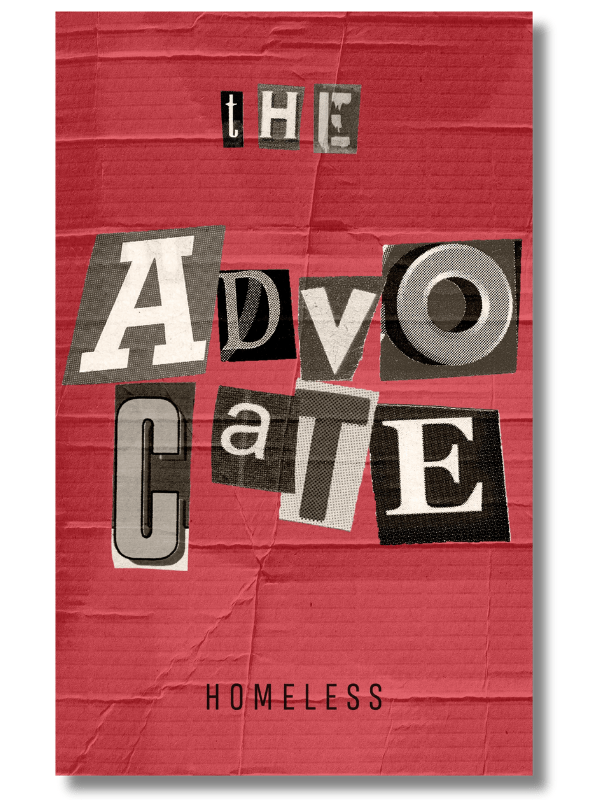The Advocate
by Homeless
Genre: Historical Fiction
Print Length: 333 pages
Reviewed by John M. Murray
A stirring chronicle of one woman’s fight against fear and repression during America’s McCarthy era
In The Advocate: Women of the Red Scare, the narrator—Grandma Ollie’s devoted grandson—recounts the turbulent landscape of post-World War II America.
Set in the small Southern town of Livingston, the book follows Ollie, a fierce African American community organizer, as she confronts economic exploitation, racial prejudice, and the paranoia of the McCarthy era. Through her eyes, we meet a cast of mill workers, local politicians, union bosses, and curious townsfolk, all swept up in the “Red Scare–Black Scare” hysteria. The book humanizes the often-overlooked women activists of the period and illuminates how mass fear can erode justice and communal bonds.
From the very first pages, the reader is immersed in the tension of the era. “It was a dreadful time to be a kid living on Catfish Row behind railroad tracks.” Grandma Ollie’s world is one of constant vigilance, where each speech and organizing meeting risks blacklisting and arrest.
Early on, her audacious confrontation with Sam “Big Toe” Bowers—a labor leader more invested in maintaining the status quo than championing women’s rights—showcases the system she’s fighting against. In a scene both comic and revolutionary, Ollie socks Bowers in the jaw, igniting the suppressed anger of hundreds of cotton mill workers.
Using her “bullhorn on wheels,” Ollie channels that energy into mass pickets and sit-down strikes. The narrative details her strategy: “Frau Disturber sat down; and under the butts of the women workers struggled an impotent, choleric and hitherto invincible cotton empire.” Her speeches alternate between fiery oratory and tender appeals to solidarity, as she insists, “we are organized upon a principle that the strong shall help the weak.” Grandma Ollie is soon arrested on charges of inciting a riot and assault—her cause now public fodder for a fearful, sensationalist press.
Realistic and grounded characterization stands out as one of the novel’s core strengths. Grandma Ollie is an intellectually curious, unsentimental, and deeply humane figure. Through her, the author exposes the hypocrisies of both conservative elites and self-styled radicals. The grandson’s voice—equal parts affectionate and exasperated—provides a compelling counterpoint, illustrating how difficult it can be for a younger generation to grasp systemic injustice.
The narrative expertly balances satire and serious historical critique. Descriptions of the local press’s complicity (“The Livingston Daily Republican… often instigated and orchestrated the witch hunts” ) ring chillingly relevant. Meanwhile, the reader is drawn into Ollie’s private moments of doubt and resilience, like with her poetry and her reflections on Marxism and religion. The author’s seamless interweaving of historical context—the impact of Section 7A of the NRA on Southern mill towns—with personal anecdotes gives the work both depth and immediacy.
Stylistically, the book brims with memorable lines and insightful aphorisms—such as Ollie’s rallying cry, “Better to starve fighting than starve working!” Such passages underscore the moral urgency driving her activism, while preserving the wit and humanity of Ollie’s endearing personality.
Some of the book leans too heavily into dense philosophical dialogue, most notable in the latter half. Debates cover an impressive gamut of topics from Marxism to religion to human nature, but these dialogues can come across as didactic and clash with the more compelling narrative. While the discourse does reinforce a recurring theme of generational and ideological clashes, they slow the story and can feel out of place.
The Advocate: Women of the Red Scare is a powerful, uncompromising portrait of courage under siege. Through the lens of one remarkable woman’s struggle, it exposes the corrosive effects of fear-driven politics and reminds us that true progress often stems from the unlikeliest of revolutionaries. A strong blend of sharp satire and rigorous critique ensures that Grandma Ollie’s legacy will remain a beacon for those who dare to challenge injustice.
Thank you for reading John M. Murray’s book review of The Advocate by Homeless! If you liked what you read, please spend some more time with us at the links below.
The post Book Review: The Advocate appeared first on Independent Book Review.
